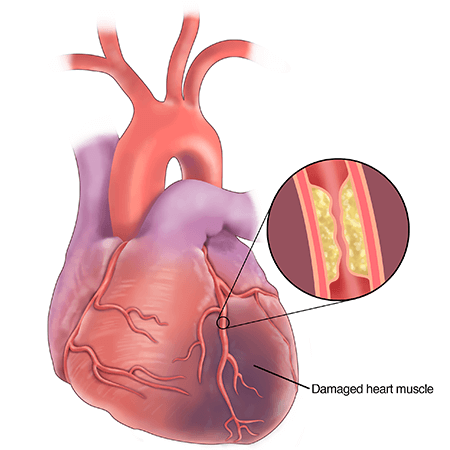What Is Coronary Artery Disease?
Doctors define coronary artery disease, also known as heart disease, as a narrowing of the blood vessels that supply oxygen-rich blood and nutrients to the heart.
A gradual build-up of cholesterol-containing deposits (plaque) on the walls of the arteries (atherosclerosis) can cause coronary artery disease.
Plaque narrows or blocks the arteries, reducing blood flow to the heart muscle.
This can result in:
- Chest pain (angina)
- Heart attack
- Death
At the UPMC Heart and Vascular Institute, we offer standard and minimally invasive procedures to treat:
- Coronary artery disease
- Atherosclerosis
- Other heart diseases and defects
Our cardiothoracic surgeons have helped pioneer the use of minimally invasive techniques in heart surgery, performing the first minimally invasive coronary bypass graft surgery in the tristate (Pennsylvania, Ohio, West Virginia) region.

Coronary artery disease is a blockage of the blood vessels that supply the heart muscles, caused by build up of plaque.
















